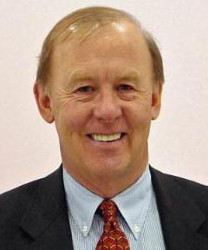How Hispanic Millennials Are Driving the Bernie Sanders Brand
Posted by Elena del Valle on February 20, 2016
By Jay Gronlund
President, The Pathfinder Group

Jay Gronlund, president, The Pathfinder Group
The surge behind this exploding Bernie phenomenon is fascinating for many reasons. It is certainly an indication of how divergent our society and politics have become, and this could even intensify in the future. It also shows the political potential of finding and concentrating on the most pronounced issues that frustrate younger people from all ethnic backgrounds, especially Hispanics. Interestingly, from a branding perspective, there are some revealing lessons from this unexpected success of the Bernie Sanders brand.
In branding, it is critical to first identify the most passionate “sweet spots” of various target segments of any market, including the voting population. The Millennials now represent the largest voting bloc in the U.S. so they cannot be ignored – these 86 million young people will represent 40 percent the electorate in 2020. The proportion of Millennials that are Hispanic is higher than other age segments – e.g. one in four Millennials are Hispanic and their median age is 27 versus 37 for the remaining population, so their influence will be significant. All these Millennials are especially emotional about certain problems which Bernie has highlighted in very simplistic, yet effective ways. For example:
• Immigration reform, especially the impact on the Hispanic community
• The campaign finance system and dominant impact from PAC’s and lobbyists
• The extraordinary power (and greed?) of Wall Street and bankers
• The dangerous “time bomb” of student debt and outrageous college tuition costs
• Income inequality, with the rich getting richer
• The pervasive harm from climate change and global warming
The results of the primaries to date confirm how this infectious passion of the Millennials has galvanized positive action for Bernie. In Iowa, 63 percent of the 35 year and under crowd voted for Bernie, compared to only 27 percent Hillary. Bernie’s attraction to younger people was similar in the New Hampshire primaries – 83 percent of the 18-29 year olds, versus only 16 percent Hillary. Exit polls on the reasons for this strong preference among Millennials mirror typical values of this younger generation – trust and integrity. They said “trustfulness” and “caring about people” were critical for their vote, and that honesty and empathy were more important than experience and electability. In general, among those voters who cared most about honesty and trustfulness, 91 percent chose Bernie and only 5 percent voted for Hillary.
There are other brand related reasons why Bernie has caught fire with his targeted Millennials. While Bernie Sanders is a member of Congress, his value proposition, unpolished demeanor and overall brand image is rather “anti-establishment” and more typical of an “outsider”. As demonstrated by the Millennials, Bernie has successfully leveraged widespread concerns and the lack of trust for the establishment. According to the latest 2015 Edelman Trust barometer, the general population in the U.S. has very low trust levels (and the trust level among Millennials is even lower) for:
• Government is the least trusted institution at 41 percent
• Financial Services is the least trusted industry at 51 percent
These evolving values and attitudes of Millennials should not be viewed as an aberration or a phenomenon that is temporary. Yes, some maturing is inevitable once they experience the realities of life (e.g. marriage, parenting, need for more stable employment, etc.). But this first digital generation has already begun to re-shape the philosophical underpinnings of corporations (e.g. social responsibility now as important as shareholder wealth) and purchasing behavior (less responsive to advertising, more dependent on credible advice from peers and experts). With Bernie’s continual outrage, they are also more aware of the dangers of the disproportionate influence of the top 1 percent in politics. In short, Millennials want fresh, relevant ideas that they don’t see from PAC advertising or more “establishment” candidates (e.g. Hillary), but do find from Bernie.
The raw appeal of Bernie for these trend setting Millennials evokes many core principles of good branding, but there are also some inherent risks behind his branding effort:
1. His labeling of “socialist” can alienate many, including all Millennials who tend to be very entrepreneurial.
2. While Bernie has successfully brought many key issues to the forefront, his solutions or brand promises may not be realistic, hence a risk of over promising to these younger people.
3. While the Bernie Sanders brand is appealing to Millennials, how much further can his popularity spread? A successful brand must be distinctive but also appeal to enough people to gain wide acceptance, unless it is a niche brand which won’t work for Bernie in this Presidential race.
In many ways, the current presidential campaign is exciting, albeit extraordinary and sometimes outlandish. To be successful, a political candidate is like a brand where he/she must connect with enough people in a passionate and trustful way. Understanding these basic principles of branding can help one assess the prospects for Bernie and other candidates.
Jay Gronlund is founder of The Pathfinder Group, a business development firm specializing in emotional branding, ideation facilitation and international expansion. His background has included executive positions in marketing and new product development at reputable companies in the US and abroad. He is also vice president, managing director of Latin Pulse – USA, a marketing and research firm headquartered in Mexico City. Jay teaches branding at NYU, and has a B.A. from Colby College and MBA from Tuck at Dartmouth.










